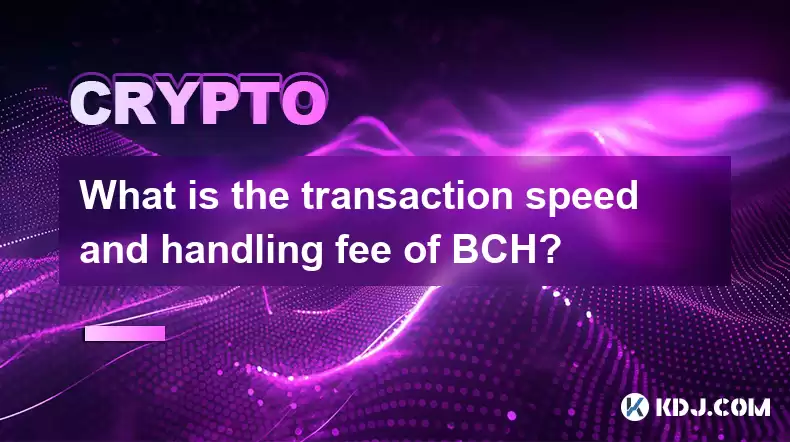-
 Bitcoin
Bitcoin $120100
1.16% -
 Ethereum
Ethereum $4329
2.25% -
 XRP
XRP $3.192
-0.22% -
 Tether USDt
Tether USDt $1.000
-0.01% -
 BNB
BNB $805.2
0.47% -
 Solana
Solana $178.7
-1.85% -
 USDC
USDC $0.9998
0.00% -
 Dogecoin
Dogecoin $0.2305
-1.62% -
 TRON
TRON $0.3445
1.17% -
 Cardano
Cardano $0.7940
-1.28% -
 Hyperliquid
Hyperliquid $44.44
-1.20% -
 Chainlink
Chainlink $21.86
-2.42% -
 Stellar
Stellar $0.4423
-0.15% -
 Sui
Sui $3.728
-3.84% -
 Bitcoin Cash
Bitcoin Cash $584.8
2.19% -
 Hedera
Hedera $0.2524
-2.87% -
 Ethena USDe
Ethena USDe $1.001
-0.02% -
 Avalanche
Avalanche $23.66
-0.78% -
 Litecoin
Litecoin $124.5
0.39% -
 Toncoin
Toncoin $3.399
1.77% -
 UNUS SED LEO
UNUS SED LEO $9.002
-0.44% -
 Shiba Inu
Shiba Inu $0.00001327
-2.10% -
 Uniswap
Uniswap $11.42
2.58% -
 Polkadot
Polkadot $3.957
-2.50% -
 Cronos
Cronos $0.1696
4.50% -
 Dai
Dai $1.000
0.00% -
 Ethena
Ethena $0.8139
3.04% -
 Bitget Token
Bitget Token $4.442
-0.38% -
 Monero
Monero $271.2
2.93% -
 Pepe
Pepe $0.00001168
-2.91%
What is the transaction speed and handling fee of BCH?
Bitcoin Cash (BCH) offers faster transaction speeds and lower fees than Bitcoin, though these fluctuate with network congestion. Transaction size and user-set fees also impact the final cost.
Mar 12, 2025 at 08:46 am

Key Points:
- Bitcoin Cash (BCH) boasts significantly faster transaction speeds compared to Bitcoin (BTC).
- BCH transaction fees are generally much lower than those on the Bitcoin network.
- Transaction speed and fees on BCH can fluctuate based on network congestion.
- Several factors influence BCH transaction costs, including transaction size and network demand.
- Understanding these factors is crucial for optimizing BCH transactions.
What is the transaction speed and handling fee of BCH?
Bitcoin Cash (BCH) was created as a hard fork from Bitcoin (BTC) with a primary goal of improving scalability. This directly addresses the issues of slow transaction speeds and high fees often associated with Bitcoin. BCH achieves this through a larger block size, allowing for more transactions to be processed per unit of time. As a result, BCH typically offers significantly faster confirmation times than BTC.
The speed of a BCH transaction isn't fixed. It depends on the current level of network activity. During periods of low network congestion, transactions can be confirmed within minutes. However, during peak times, confirmation might take a bit longer, though generally still much faster than Bitcoin. Think of it like a highway; during rush hour, it takes longer to reach your destination.
Unlike Bitcoin, BCH generally enjoys significantly lower transaction fees. These fees are paid to miners for processing and confirming transactions. The lower fees are a direct consequence of the larger block size. A larger block can accommodate more transactions, reducing the per-transaction cost. This makes BCH a more attractive option for smaller, frequent transactions.
The exact fee you pay for a BCH transaction depends on several factors. The size of your transaction is a key determinant. Larger transactions, which involve more data, generally cost more to process. The level of network congestion also plays a significant role. When the network is busy, miners may prioritize transactions with higher fees, leading to potentially higher costs for you.
You can usually influence the speed of your transaction by adjusting the fee you are willing to pay. Higher fees generally result in faster confirmation times as miners are incentivized to prioritize them. Conversely, lower fees will likely result in slower confirmation times. It's a balance between speed and cost. Many wallets will automatically suggest a reasonable fee, but you often have the option to adjust it manually.
How to minimize BCH transaction fees:
There are several strategies you can employ to keep your BCH transaction fees low:
- Choose the right time: Avoid sending transactions during periods of peak network activity. This is often when transaction fees are highest.
- Consolidate transactions: Instead of making many small transactions, combine them into fewer, larger ones. This reduces the overall number of transactions and thus the fees.
- Use a wallet that optimizes fees: Many BCH wallets automatically select optimal fees based on network conditions. Take advantage of these features.
- Monitor network congestion: Keep an eye on the current state of the BCH network. Many websites provide real-time data on network activity and fees.
How does BCH transaction speed compare to other cryptocurrencies?
BCH's transaction speed is considerably faster than Bitcoin's, often measured in minutes rather than hours or even days. However, other cryptocurrencies, designed specifically for high throughput, might offer even faster transaction times. The optimal choice depends on your specific needs and priorities.
What factors influence BCH transaction fees?
The primary factors influencing BCH transaction fees are:
- Transaction size: Larger transactions, with more inputs and outputs, generally cost more.
- Network congestion: Higher network activity leads to increased competition for block space, resulting in higher fees.
- Miner priority: Miners prioritize transactions with higher fees, ensuring faster processing.
- Fee selection: You can manually adjust the fee you're willing to pay, influencing transaction speed.
Common Questions & Answers:
Q: Is BCH faster than Bitcoin?
A: Yes, BCH generally offers significantly faster transaction speeds than Bitcoin due to its larger block size and different consensus mechanism.
Q: Are BCH fees always low?
A: While generally lower than Bitcoin, BCH fees can fluctuate depending on network congestion. They are usually more predictable than Bitcoin fees.
Q: Can I control the transaction fee for BCH?
A: Yes, many wallets allow you to manually adjust the transaction fee. Higher fees usually result in faster confirmation.
Q: How can I check the current BCH transaction fees?
A: Many cryptocurrency explorers and wallets display real-time estimates of BCH transaction fees based on network conditions.
Q: What happens if I set a very low transaction fee for BCH?
A: Your transaction may take a significantly longer time to confirm, or it might not be confirmed at all if the fee is too low relative to network congestion.
Q: Are there any risks associated with BCH transactions?
A: As with all cryptocurrencies, there are risks associated with BCH transactions. These include the possibility of double-spending, though less likely with BCH's faster confirmation times, and the risk of scams and fraudulent activities. Always exercise caution and use reputable wallets and exchanges.
Disclaimer:info@kdj.com
The information provided is not trading advice. kdj.com does not assume any responsibility for any investments made based on the information provided in this article. Cryptocurrencies are highly volatile and it is highly recommended that you invest with caution after thorough research!
If you believe that the content used on this website infringes your copyright, please contact us immediately (info@kdj.com) and we will delete it promptly.
- Bitcoin, Solana, MAGACOIN FINANCE: Navigating the 2025 Crypto Landscape
- 2025-08-12 00:30:13
- Cardano, ADA Holders, and Layer Brett: A Meme Coin with Real Utility?
- 2025-08-12 00:50:12
- Bitcoin, Michael Saylor, and Savvy Investors: A New Era of Digital Assets
- 2025-08-12 00:30:13
- Crypto Presales in 2025: Spotting the Next Big Thing with Analyst Insights
- 2025-08-12 00:50:12
- Cloud Mining in 2025: Bitcoin, Litecoin, and the Quest for Passive Income
- 2025-08-12 00:55:32
- Token Security, Agentic AI, Cybersecurity Guide: Navigating the New Frontier
- 2025-08-11 23:00:12
Related knowledge

How to purchase Aragon (ANT)?
Aug 09,2025 at 11:56pm
Understanding Aragon (ANT) and Its PurposeAragon (ANT) is a decentralized governance token that powers the Aragon Network, a platform built on the Eth...

Where to trade Band Protocol (BAND)?
Aug 10,2025 at 11:36pm
Understanding the Role of Private Keys in Cryptocurrency WalletsIn the world of cryptocurrency, a private key is one of the most critical components o...

What is the most secure way to buy Ocean Protocol (OCEAN)?
Aug 10,2025 at 01:01pm
Understanding Ocean Protocol (OCEAN) and Its EcosystemOcean Protocol (OCEAN) is a decentralized data exchange platform built on blockchain technology,...

Where can I buy UMA (UMA)?
Aug 07,2025 at 06:42pm
Understanding UMA and Its Role in Decentralized FinanceUMA (Universal Market Access) is an Ethereum-based decentralized finance (DeFi) protocol design...

How to buy Storj (STORJ) tokens?
Aug 09,2025 at 07:28am
Understanding Storj (STORJ) and Its Role in Decentralized StorageStorj is a decentralized cloud storage platform that leverages blockchain technology ...

Where to find the best price for Audius (AUDIO)?
Aug 11,2025 at 04:01pm
Understanding the Basics of Ethereum StakingEthereum staking refers to the process of locking up ETH tokens to support the security and operations of ...

How to purchase Aragon (ANT)?
Aug 09,2025 at 11:56pm
Understanding Aragon (ANT) and Its PurposeAragon (ANT) is a decentralized governance token that powers the Aragon Network, a platform built on the Eth...

Where to trade Band Protocol (BAND)?
Aug 10,2025 at 11:36pm
Understanding the Role of Private Keys in Cryptocurrency WalletsIn the world of cryptocurrency, a private key is one of the most critical components o...

What is the most secure way to buy Ocean Protocol (OCEAN)?
Aug 10,2025 at 01:01pm
Understanding Ocean Protocol (OCEAN) and Its EcosystemOcean Protocol (OCEAN) is a decentralized data exchange platform built on blockchain technology,...

Where can I buy UMA (UMA)?
Aug 07,2025 at 06:42pm
Understanding UMA and Its Role in Decentralized FinanceUMA (Universal Market Access) is an Ethereum-based decentralized finance (DeFi) protocol design...

How to buy Storj (STORJ) tokens?
Aug 09,2025 at 07:28am
Understanding Storj (STORJ) and Its Role in Decentralized StorageStorj is a decentralized cloud storage platform that leverages blockchain technology ...

Where to find the best price for Audius (AUDIO)?
Aug 11,2025 at 04:01pm
Understanding the Basics of Ethereum StakingEthereum staking refers to the process of locking up ETH tokens to support the security and operations of ...
See all articles

























































































